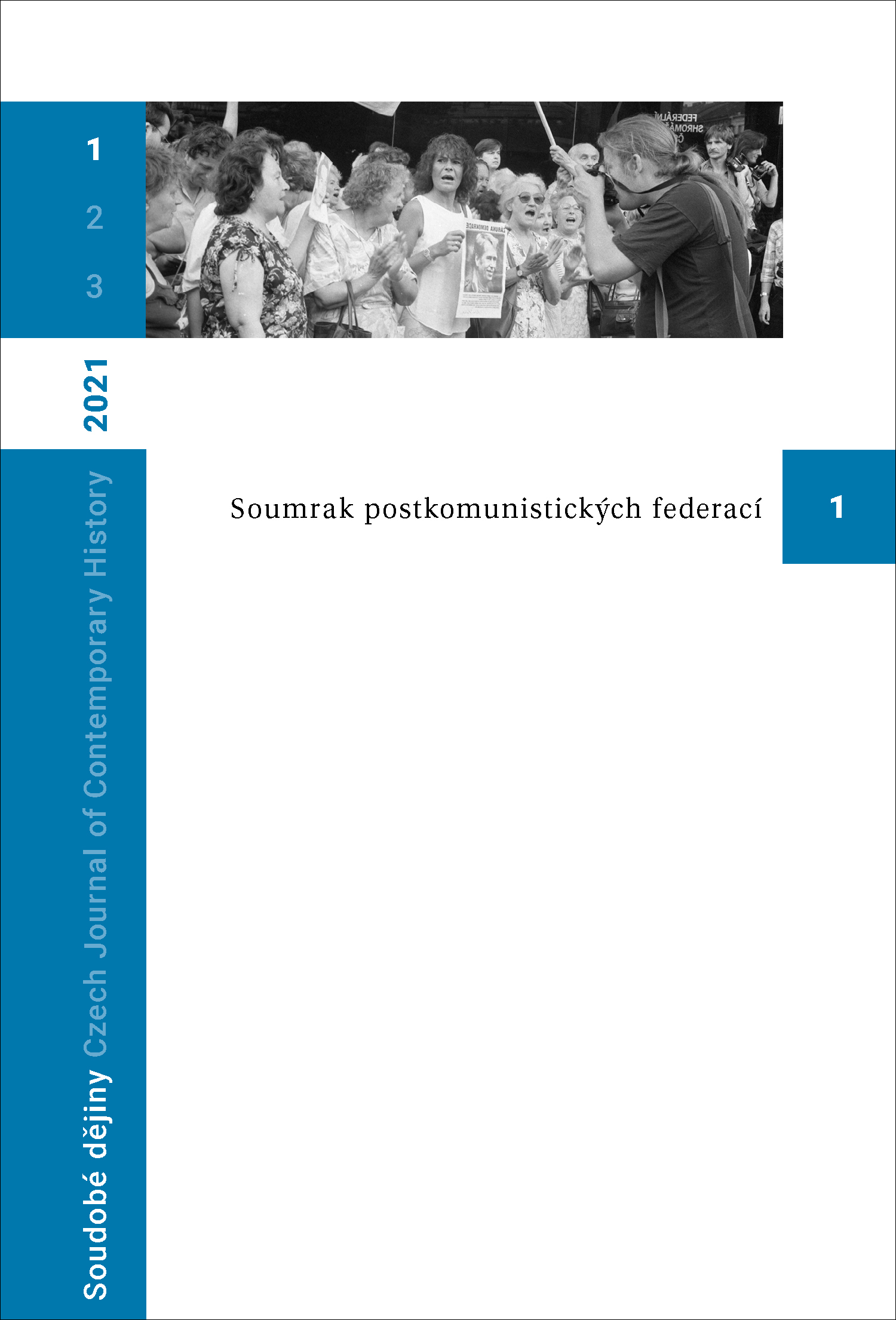Rok 1989 jako zažátek konce Jugoslávie – slovinská perspektiva
The Year 1989 as the Beginning of the End of Yugoslavia – the Slovenian Perspective
Slovenian Public Opinion and the Nature of the Federation
Author(s): Jure GašparičSubject(s): History, Sociology, Ethnohistory, Political history, Post-War period (1950 - 1989), Transformation Period (1990 - 2010), History of Communism, Post-Communist Transformation, Wars in Jugoslavia
Published by: AV ČR - Akademie věd České republiky - Ústav pro soudobé dějiny
Keywords: Slovenia; Yugoslavia; federalism;public opinion polls;Slovenian society;national identity;communism;self-governing socialism;disintegration of Yugoslavia;democratic transition
Summary/Abstract: The author examines the attitude of Slovenians to the Socialist Federative Republic of Yugoslavia since the late 1960s until the declaration of the independent Republic of Slovenia in 1991. He asks himself a question whether socialist Yugoslavia was indeed a state which Slovenians perceived as theirs, just like they had done in the case of the pre-war Kingdom of Yugoslavia, and he observes how their identification with that state was changing over time, the reasons of the changes, and whether the loss of their loyalty caused the disintegration of the Yugoslav federation. He is looking for answers in public opinion polls which had been continually taking place in Slovenia since 1968 and conducted in a relatively fair manner, without political interventions, which is indeed a rarity in the context of socialist countries. Using their results, the author concludes that Slovenians viewed themselves as a natural part of the Yugoslav community until the late 1980s. This opinion was shared by a majority of Slovenia’s population, although many of them were not satisfied with Slovenia’s position in Yugoslavia, or their living standard at times of economic crises. It was only in 1989 that the opinion that Yugoslavia as a “country of many advantages” had run out of its potential and no longer offered good prospects for future prevailed among Slovenians. However, their attitudes reacting to accelerating changes both at home and abroad did not cause the disintegration of the common state. After 1991, Slovenians completely (and sometimes uncritically) identified themselves with independent Slovenia, and mostly (although rather declaratively) also with values of parliamentary democracy. The author’s exposition is preceded by an analysis of published sources on the disintegration of Yugoslavia and based on an extensive set of empirical data from public opinion polls in the form of tables.
Journal: Soudobé Dějiny
- Issue Year: XXVIII/2021
- Issue No: 1
- Page Range: 70-98
- Page Count: 29
- Language: Czech

